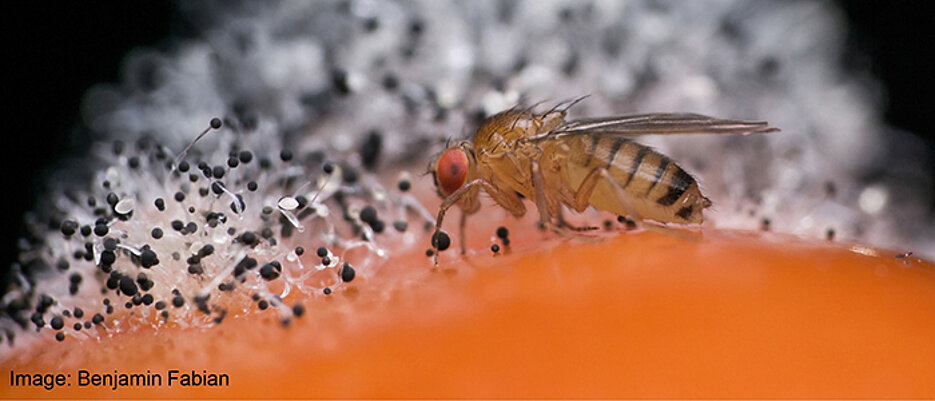Fruit Flies in the Kitchen: What You Can Do
10/21/2025Fruit flies in the home? Professor Silke Sachse from the Biocentre, an expert on these insects, has some simple tips.

Whole swarms of fruit flies can be on the move in German kitchens on mild autumn days. They are after the apple pie, the leftover red wine in unrinsed glasses or the ripe bananas in the fruit basket. They are not dangerous, but they are a nuisance.
For biology professor Silke Sachse from the University of Würzburg, fruit flies are fascinating. The Head of the Chair of Neurobiology and Genetics at the Biocentre is researching how the flies' brains process scents and how the smells control the behaviour of the small insects.
What are the flies looking for in the kitchen? The professor knows the answer: food and a good place to lay their eggs, where their larvae will later find enough to eat. Ripe fruit magically attracts fruit flies. However, they also like vinegar or alcohol flavours - both are produced when fruit is overripe and begins to ferment.
Traps for Fruit Flies are Easy to Build
These preferences of fruit flies can be exploited to discourage them from spending time in the kitchen. The first measure you should take is to deprive the flies of the objects of their desire - i.e. do not leave fruit and unwashed juice and wine glasses standing around.
If that doesn't work: Put a dash of apple juice, red wine or balsamic vinegar in a small bowl and add a drop of washing-up liquid - and you have the ideal fruit fly trap. The scent attracts the small insects, they venture into or onto the liquid and then sink - because the washing-up liquid reduces the surface tension, the liquid cannot support even the small weight of the flies.
Eggs Are Not Poisonous
Fruit flies are also known as fruit flies or vinegar flies. Their scientific name: Drosophila melanogaster. If they lay their tiny eggs on fruit in the kitchen and a person eats the fruit? "No problem," says Silke Sachse. The fly eggs are not poisonous and do not transmit any diseases. Stomach acid kills them.
Weblink
More about Silke Sachse's research (in German)






